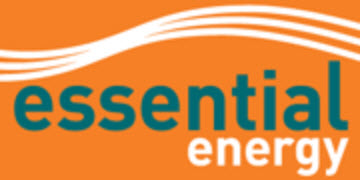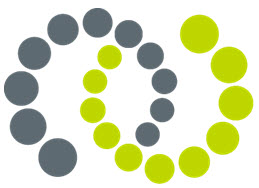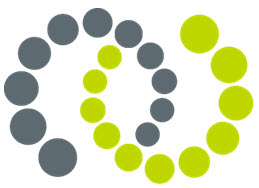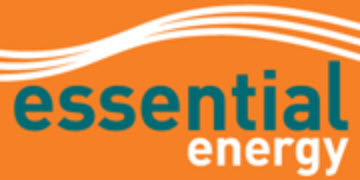Information
-
Document No.
-
Audit Title
-
Client / Site
-
Conducted on
-
Prepared by
-
Location
-
Personnel
Essential Energy ITP Audit
-
Site photo
-
UEA Crew number/ Leading hand.
-
UEA HAC/risk assessment completed
-
All crew members understand their rolls and have approprate coloured hard-hat/brim
-
Approved testing equipment being used
PHASE 1
-
P1-S1. Correct and approved materials as per E.E approved materials database
-
P1-S2. Conduct risk assessment utilizing HAC Risk Assessment
-
P1-S3. Customer notified of works about to commence
-
P1-S4. Visual inspection of POCC, measurents of road cleanances conducted
-
P1-S5. Visual inspection at POS completed
-
P1-S6. Exposed metal structures/fixtures checked de-energised using proximity tester
-
P1-S7. Visual inspection of main switchboard, Proximity test prior to handling swichboard, P2 mask worn.
-
P1-S8. Phase rotation checked at line side of fuses, results recorded on switch board pannel and in UEA checklist. (2 man test)
PHASE 2
-
P2-S1. Exposed metal fixtures/structures checked de-energised using proximity tester.
-
P2-S2. Visual inspection of localized PV solar supply- shut down correctly.
-
P2-S3. All main switches open, Tong test consumer mains connecting into line side of Service Fuses to ensure no load present.
-
P2-S4. Remove sevice fuses - continuity test completed on service fuse cartridges. (Board locked if left un-attended)
-
P2-S5. Safety observer (orange) is in position observing EWP.
-
P2-S6. Independent earth installed and connected to an approved testing device.
-
P2-S7. Test between Independent Earth and all four distribution conductors- Possible neutral identified.
-
P2-S8. Disconnect and remove earth lead from work area.
-
P2-S9. Connect testing device to the distribution conductor identified as possible neutral
-
P2-S10. Test from 'possible neutral conductor' to the other three distribution conductors- Confirm Neutral conductor and Mark with Neutral tag
-
P2-S11. Test between each of the distribution active conductors with testing device- Confirm all different phases
-
P2-S12/13. Using Tong type ammeter, test service to ensure there is no load present. Test tong meter on distribution conductor.
PHASE 3
-
P3-S1. Disconnect the service main active conductors from distribution mains first. (check with proximity tester service tail is de-energised and test the tester)
-
P3-S2. Disconnect the service main neutral from distribution mains last. (check with proximity meter that tail is de-energised- test the tester)
-
P3-S3. Remove from J hook and lower the disconnected service to the ground.
-
P3-S4/S5. Service main disconnected from POS and existing earth bonds removed.
PHASE 4
-
P4-S1. Fit and Secure new service main ABC cable to POS fixing- HSC's are terminated at POS tail.
-
P4-S2. String and secure new ABC service to distribution pole.
-
P4-S3. Insulation resistance test performed on service main (50M ohms or more achived)
-
P4-S4. Voltage test between service tails and distribution mains completed
-
P4-S5. Connect the new service main Neutral to the distribution Neutral
-
P4-S6. Connect the new service main active conductors to the distribution mains active conductors. (remove neutral tag)
PHASE 5
-
P5-S1. Using a proximity meter, confirm service is de-energised at switchboard.
-
P5-S2. Install Independent Earth at switchboard (min 2m from Main Earth), Conduct voltage test between independent earth and service neutral link. (0-5v reading)
-
P5-S4. Disconnect consumer mains neutral, Check insulation resistance of Consumer Mains (min 1M ohm, tester set at 500v, only test if consumer mains are not vulcanised indian rubber,Neutral screen or Mains Connection Box)
-
P5-S5. Reconnect Main Neutral conductor to service Neutral Link and confirm all main switches and service fuses are open.
-
P5-S6- ensure HSC'S are installed the right way around- tug test.
-
P5-S7/S8/S9. Test between Independent earth and single/double/tripple ribbed service conductors. (230v reading, 2 man witness)
-
P5-S10. Test between Independent Earth and multi ribbed service main conductor. (0v reading, 2 man witness, prove testing device)
-
P5-S11. Connect testing device to service main conductor which gave 0V reading- 'Possible service main neutral'.
-
P5-S12/S13/S14. Test from 'possible service main neutral conductor' to the single/double/tripple ribbed conductors. (a reading of 230v should be found, 2 man witness)
-
P5-S15/S16/S17. Connect the testing device between the individual phases (a-b,a-c,c-b ensure a reading of 400v is found, 2 man test)
-
P5-S18. Test from a Service Main Active conductor to each consumer main tail. Once 'possible consumer mains neutral conductor' is identified, it is to remain held until labelled with a neutral tag. <br>(2 man test, Ensure consumer mains tails are fitted with UV sleaving, prove testing device)
-
P5-19. Test between the Service Main Neutral conductor and the Consumer main neutral conductor (a reading of 0V should be found, prove testing device)
-
P5-20. Connect the Consumer Main Neutral to the Service main Neutral conductor using approved HSC. (tug-test)
-
P5-S21. If an earth bond is required to be installed, test -independent earth to neutral conductor -indpendent earth to earth tail -earth tail to neutral conductor. (reading of 0-5v is acceptable, tug-test connections, prove tester)
-
P5-S22. Test between each service main active conductor/s and each consumer main active conductor/s. (0v reading should be found, two man witness test, prove testing device)
-
P5-S23. Connect one Service Main Active to one Consumer Mains Active using approved HSC (tug-test connection)
-
P5-S24. Test between the remaining Service Main Active condutors and the remaining Consumer Main Active conductors prior to connection. (0v reading should be found, 2 man witness, prove testing device)
-
P5-S25. 'Pinch connect' one Service Main Active Conductor to one Consumer Main Active conductor using approved single bolt HSC.
-
P5-S26. Test between the remaining Service Main Active conductor and the remaining Consumer Main Active conductor prior to connection. (0V reading should be found, 2 man test, prove testing device)
-
P5-S27. 'Pinch connect' the last Service Main Active conductor to the last Consumer Main conductor using approved single bolt HSC.
-
P5-S28. Test phase rotation and ensure the phase rotation is same as it was when tested earlier. (two man witness)
-
P5-S29. Once phae rotation has been confirmed at switchboard, the 'pinch connected' HSC's can be sheared off. (tug test)
PHASE 6
-
P6-S1. Proximity test switchboard confirm de-energised. (two man test)
-
P6-S2. Test between Independent Earth and the Line Side of each Service Fuse. (230v reading should be found, two man test)
-
P6-S3. Test between the independent Earth and the Consumers Neutral Link. (two man test, prove tester)
-
P6-S4. Test between the Line Side of each service Fuse to the Service Main Neutral Link. (230V reading sould be found, 2 man witness)
-
P6-S5. Test between the Line Side of the Service Fuses to verify different phases. (400v reading should be found, 2 man witness)
-
P6-S6. Perform Neutral Integrity Test with approved load device on Line side of the Service Fuse/s.(2 man test)
-
P6-S7. Reinsert Service Fuses. Close main switch and Re-energise installation.
-
P6-S8. Perform switchboard 0-5v Final Test. (2 man test)
-
P6-S9. Seal all of the service equipment as required.
PHASE 7
-
P7-S1. Conduct visual inspection at the Main Switchboard and complete UEA post work checklist
-
P7-S2. Conduct visual inspections at POS and complete UEA post work checklist.
-
P7-S3. Conduct visual inspection of POCC and complete UEA post work checklist.<br>Conduct measurements of road clearance heights at centre of road and kurb.
-
P7-S4. Knock on customers door and notify them works have been completed and leave completion notification.
-
Site audit comments.
-
Audit completed by
-
UEA leading hand











